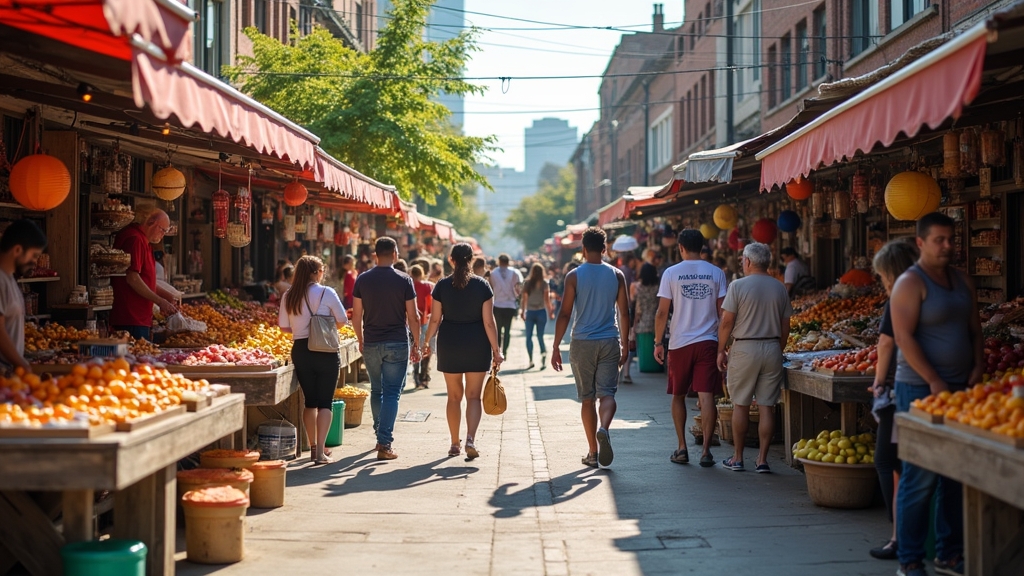Effective Hyperlocal Marketing Strategies for Your Business
Introduction to Hyperlocal Marketing
Hyperlocal marketing is a strategy that focuses on targeting customers in a specific, localized area. It’s important because it allows businesses to connect with their community more effectively, leading to increased foot traffic and sales. As consumers increasingly seek personalized experiences, hyperlocal marketing has become vital for businesses of all sizes. The rise of smartphones and location-based services has made it easier than ever for companies to reach potential customers right where they are.
Understanding Your Target Audience
Identifying Local Demographics
To succeed in hyperlocal marketing, you first need to understand who your audience is. Start by identifying local demographics such as age, gender, income level, and interests. This information helps you tailor your marketing efforts to meet the needs of your community. For example, if you run a coffee shop in an area with many college students, consider offering discounts or promotions that appeal specifically to them.
Analyzing Customer Behavior in Local Markets
Next, analyze customer behavior within your local market. Look at what products or services are popular among residents and how often they purchase them. You can gather this data through surveys or by observing trends on social media platforms. Understanding these behaviors will help you create targeted campaigns that resonate with local consumers.
Utilizing Location-Based Technology
GPS and Geofencing in Marketing
Location-based technology plays a crucial role in hyperlocal marketing strategies. GPS technology allows businesses to send targeted messages directly to customers’ smartphones when they are nearby. Geofencing takes this a step further by creating virtual boundaries around specific locations; when a customer enters this area, they receive notifications about special offers or events.
Mobile Apps and Their Impact on Engagement
Mobile apps also enhance engagement with local audiences. By developing an app for your business that includes features like loyalty rewards or location-specific promotions, you can keep customers informed about what’s happening nearby. This not only boosts customer retention but also encourages repeat visits.
Creating Locally Relevant Content
Tailoring Messaging for Local Communities
Creating content that speaks directly to your local community is essential for effective hyperlocal marketing. Use language and references familiar to residents while highlighting local events or issues relevant to them. For instance, if there’s a festival coming up in town, promote any specials related to it through your website or social media channels.
The Role of User-Generated Content
User-generated content (UGC) can significantly enhance your hyperlocal marketing efforts as well. Encourage customers to share their experiences with your products on social media using specific hashtags related to your business or locality. This not only builds trust among potential new customers but also fosters a sense of community around your brand.
Leveraging Social Media for Hyperlocal Reach
Best Practices for Engaging Local Audiences
Social media platforms are powerful tools for reaching local audiences effectively. To engage users successfully: post regularly about local happenings; respond promptly to comments; and use location tags in posts so people know you’re part of their community! Additionally, consider running contests encouraging locals to tag friends—this increases visibility within the neighborhood!
Case Studies of Successful Local Campaigns
Looking at successful case studies can provide inspiration for your own campaigns! For example, some restaurants have gained significant traction by hosting “locals-only” nights where only residents can attend exclusive events featuring discounted meals or live music performances tailored specifically toward their tastes!
Building Partnerships with Local Businesses
Collaborations and Cross-Promotions
Partnering with other local businesses can amplify the impact of hyperlocal marketing strategies! Consider cross-promotional deals where both parties benefit from shared advertising costs while attracting each other’s clientele—this creates win-win situations benefiting everyone involved!
Community Involvement and Sponsorship Opportunities
Getting involved in community events shows commitment beyond just selling products—it builds relationships too! Sponsor school sports teams or participate actively during festivals—these actions demonstrate genuine care towards improving the neighborhood while increasing brand awareness simultaneously!
Measuring the Success of Hyperlocal Strategies
Key Metrics to Track
To determine whether your hyperlocal marketing strategies work effectively requires tracking key metrics such as foot traffic increase after campaigns launch alongside online engagement rates (likes/shares/comments). Monitoring these indicators provides insights into areas needing improvement moving forward!
Tools for Analyzing Hyperlocal Marketing Effectiveness
Various tools exist today designed specifically analyzing effectiveness surrounding localized efforts—from Google Analytics providing data regarding website visitors originating from certain regions down through social listening tools gauging sentiment expressed towards brands across various platforms—all invaluable resources ensuring continuous growth within markets served!
Conclusion: Embracing the Future of Hyperlocal Marketing
In conclusion, embracing effective hyperlocal marketing strategies is essential for connecting deeply with communities around you! By understanding target audiences better utilizing technology creatively crafting relevant content leveraging partnerships measuring success accurately—you’ll position yourself favorably amidst competition ensuring long-term sustainability growth ahead!
📢 Explore More: Continue Your Journey!
If this article helped you understand hyperlocal marketing better, check out “The Power of Community Engagement!” It covers how building strong relationships within neighborhoods helps strengthen brand loyalty while driving sales more effectively.














![NEEWER 55W 18"/45cm Ring Light Kit [New Version], 5600K Dimmable ...](https://m.media-amazon.com/images/I/414QLqvZWLL._AC_.jpg)








